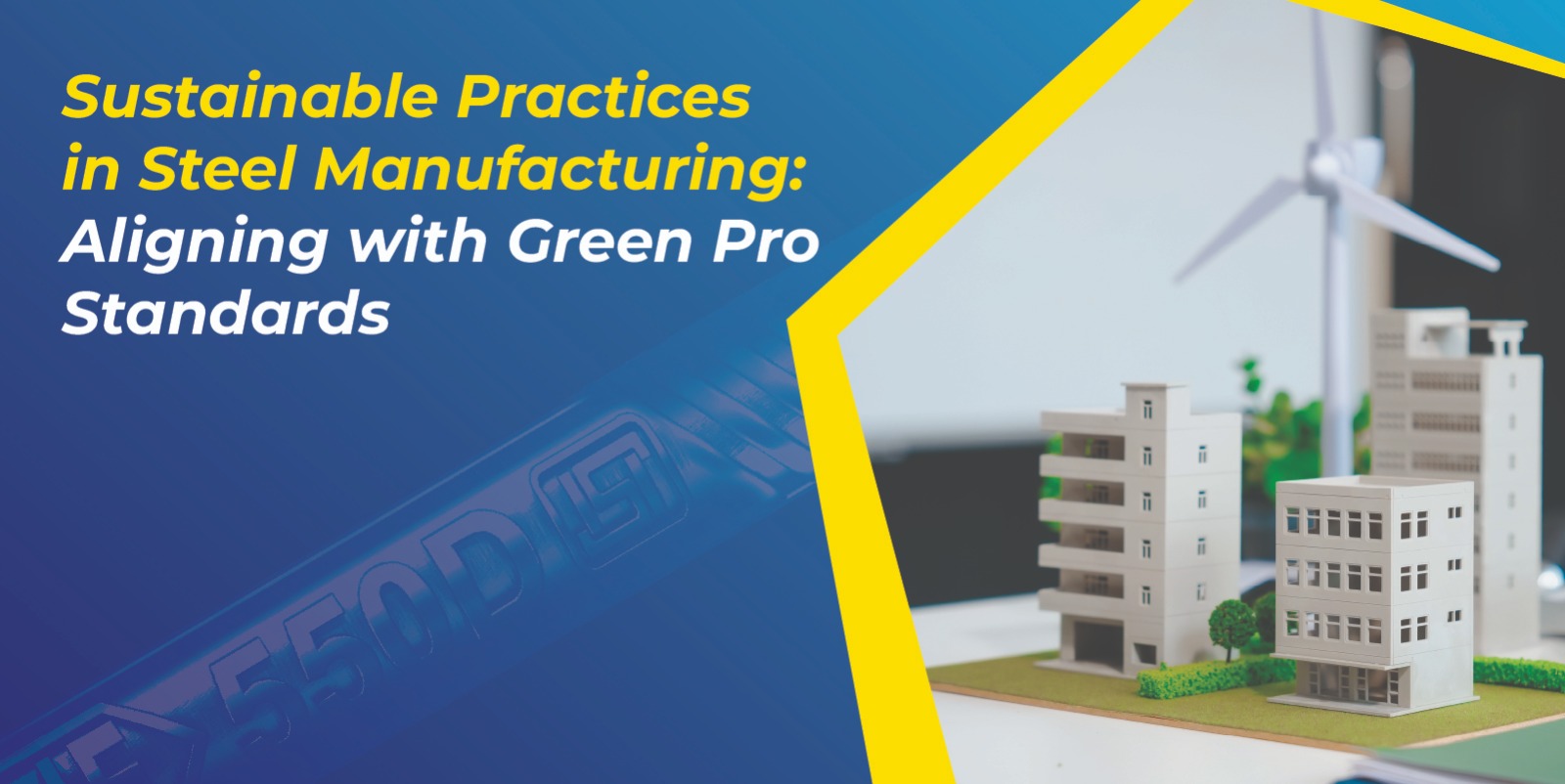Sustainable Practices in Steel Manufacturing: Aligning with Green Pro Standards
Globally, the production of steel is an essential industry that supports several other industries. It includes infrastructure, manufacturing, and construction. Nonetheless, there is evidence linking conventional steel production techniques to significant environmental consequences, such as increased energy usage, resource depletion, and greenhouse gas emissions.
And the industries have been increasingly adapting to sustainable practices to counter these situations. This would help minimize the industrial footprints and meet certain global standards like GreenPro.
Basic Understanding of GreenPro Standards for the steel manufacturing industry
GreenPro standards are a set of criterias which are used to certify and evaluate products in different industries and steel industry is also one of them. It is done based on the environmental performance of the respective industries.
These guidelines provide a strong emphasis on reducing waste, conserving resources, using eco-friendly technologies, and energy use. Following the GreenPro guidelines is a sign of sustainability and good environmental stewardship for the steel sector.
Essential Sustainable Practices in the Steel Manufacturing Industry
There are some key practices that the steel manufacturers can follow to adhere to the sustainable practices. They are as follows.
- Resource Recycling and Conservation
Steel is easily and highly recyclable. And recycling scrap steel can significantly reduce carbon footprints and harmful gas emissions. The sustainable steel manufacturers are promoting scrap steel recycling through sorting, efficient collection and processing systems. By using the scrap steels in EAFs instead of raw iron ore, manufacturers can conserve natural resources and reduce mining impacts. It also decreases energy requirements for the steel production.
- Reduction of Carbon Footprint and energy efficiency
One of the primary reasons to stick to sustainable practices in the steel manufacturing industry is to reduce carbon footprints and lower emissions. Traditional steel manufacturing procedures like blast furnace routes, energy emissions and substantial emissions of CO2 are causing harmful pollution to the environment.
The manufacturers are continuously adopting to the technologies like EAFs that uses scrap metals to mitigate the impacts of the traditional processes. EAF not just reduce energy consumptions but also reduces carbon footprints by limiting the use of coke and coal.
- Waste minimization and circular economy
The sustainable steel manufacturers strive to minimize waste generation and promote a circular economy approach. It involves reducing waste generation through process optimization, reusing the by-products and materials for the manufacturing process.
It also recycles the waste materials back into the production cycle and other industries. The steel manufacturers can reduce landfill waste and conserve the resources by adopting to these procedures.
- Adoption of Innovation and Clean technologies
Innovation plays a crucial role in advanced sustainable steel manufacturing. The companies must invest more on research and development to develop and implement cleaner technologies like carbon capture and storage, hydrogen-based steel making and advanced furnace technologies. These technologies can further reduce emissions, improve energy efficiency, and enhance the overall environmental performance of steel manufacturing procedures.
- Water management and conservation
The steel manufacturing procedures need significant amount of water for cooling, cleaning and the process operations. Sustainable practices in water management include implementing closed-loop systems to minimize water usage, treating and recycling processed water, and adopting water-efficient technologies.
These procedures can reduce freshwater consumption and also minimize waste water discharge. It would mitigate the adverse environmental impact on local water resources.
How have the steel manufacturers benefitted from GreenPro certifications?
Having GreenPro certification for steel manufacturers comes with numerous advantages.
- Market Differentiation
The GreenPro certification marks the products and processes as environmentally friendly. It enhances market competitiveness and meets the customer demands for sustainable products.
- Corporate reputation
Certification also enhances corporate reputation by demonstrating commitment to sustainability and attracts the environmentally conscious investors, partners, and the customers.
- Cost Savings
Sustainable practices in the steel manufacturing industry often leads to saving expenditures by improving energy efficiency. It also reduces waste deposition costs and operational efficiencies.
- Regulatory Compliance
The certification ensures compliance with the regulatory standards, demonstrates corporate responsibility, and reduces regulatory risks.
Conclusion
Achieving global sustainability goals and tackling environmental issues need the steel industry to adopt sustainable practices. Through the implementation of environmentally sustainable technology and adherence to GreenPro standards, steel manufacturers may effectively mitigate their environmental impact, optimise their operational efficiency, and fortify their market position. The road towards a sustainable future for steel manufacture is becoming more common, attainable, and significant as the sector invests in and innovates in sustainability.

